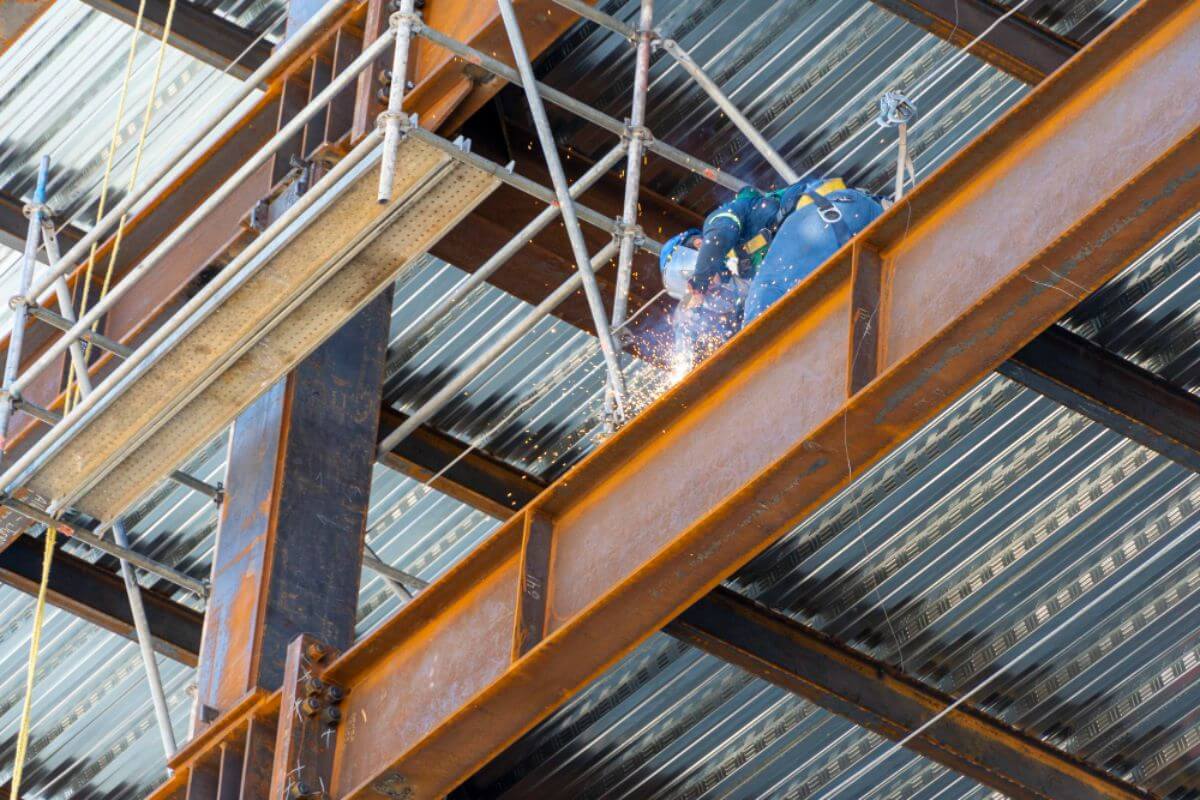Overview
- Quality assurance (QA) is essential in the steel industry to ensure products meet high standards of strength and durability.
- It involves consistent testing, monitoring, and adhering to industry standards.
- Regan Steel, a leading supplier in the Philippines, emphasizes QA to provide reliable, safe, and cost-effective steel products for critical applications.
Quality assurance is crucial in the steel industry to ensure strong, durable, and safe products. By checking each step of production, from raw materials to finished products, QA helps spot defects and maintain consistency. This guarantees that steel products meet industry standards and satisfy customer expectations.
In this article, we will delve into understanding steel quality assurance. This includes its substantial roles, how it works, and why Regan Steel Industry is the best steel supplier in the Philippines.
Why is Quality Assurance Necessary for Steel Products?
Steel Products are utilized in critical applications such as construction, automotive, and infrastructure. Without quality assurance, their failure and inability to reach the standards of the steel industry can lead to significant risks such as costly repairs, safety hazards, or even structural collapse in building projects across the industries.
On the other hand, implementing consistent and efficient QA processes helps detect defects earlier and prevent compromised products from reaching the market. This ensures that the steel performs as intended under various conditions and maintains structural integrity over time.
How Does Quality Assurance Work and Play a Crucial Role in Steel Products?

Quality assurance in the steel industry is essential to reduce product failure and maintain structural integrity. This section will explain how QA ensures top-quality steel products and its vital role across various industries.
Implementing Constant Monitoring and Testing
Consistent monitoring and testing of steel products involves ongoing evaluation throughout the production process to ensure they meet quality standards. This includes real-time checks on key factors like temperature, pressure, and material composition, with regular testing covering the following aspects:
- Tensile Testing: Measures strength by stretching the material until it breaks, assessing its durability under tension.
- Hardness Testing: Evaluates resistance to indentation, abrasion, or scratching, indicating strength and longevity.
- Chemical Analysis: Tests the steel’s composition to ensure it meets quality standards.
- Impact Testing: Uses a pendulum to test toughness, fracture resistance, and energy absorption by subjecting the steel to a single blow.
These diverse assessments and testing help distinguish any potential flaws or deviations from specifications early, preventing defects that could affect the steel’s performance.
Adhering to Industry Procedures and Standards
Following established guidelines, manufacturers ensure safety and reliability in their products, which are essential for applications in construction, automotive, and other industries. These procedures and steel industry standards can be complied with and based on the International Standardization Organization (ISO) and the American Institute of Steel Construction (AISC).
In the Philippines, steel suppliers and manufacturers follow the Philippine National Standards (PNS), overseen by the Department of Trade and Industry. The PNS, implemented by the Bureau of Philippine Standards (BPS), includes key standards such as:
- PNS 49: Steel Bars for Concrete Reinforcement – Ensures steel bars meet strength and durability requirements for reinforced concrete.
- PNS 41: Structural Steel Plates – Defines specifications for steel plates used in construction and infrastructure projects.
These meet the required specifications for quality, security, and performance, ensuring they are suitable for use in critical infrastructure and assuring customers.
Improving Production Efficiency and Long-Term Value
Efficient production and lasting value include the optimization of manufacturing methods that maximize product durability, quality, and sustainability. This can be achieved through modern technologies, better resource management, and streamlined workflows. For instance, automation in steel mills can cause prompt production while minimizing human error and improving consistency in the finished product.
As for the long-term value, adopting environmentally friendly approaches, such as energy-efficient processes and recycling scrap steel, helps to its sustainability. By improving production efficiency, manufacturers enhance the overall quality of their products, ensuring timeless competitiveness in the market.
Enhancing Consumers’ Trust and Satisfaction
Effective quality assurance of steel products exceeds the expectations of the consumers, which involves providing high-quality materials and exceptional customer service. With transparent communication and constant delivery, you gain the trust of the buyers.
In achieving this, regular seeking of constructive feedback and immediately addressing their concerns are crucial to further strengthen relationships. When consumers feel confident and satisfied with the credibility of the steel products they purchase, their satisfaction grows, leading to long-term loyalty and repeat business.
Reducing Costs Over Time
Quality assurance can decrease the costs over time in the steel industry by improving operational effectiveness and minimizing waste. Implementing energy-efficient technologies and optimizing resource usage can lower energy consumption and material waste.
For instance, a supplier may collect and reprocess scrap steel from production waste or discarded steel products. With this, the company reduces the requirement for new raw materials like iron ore. Adopting this valuable strategy contributes to overall cost savings and improved profitability of the business.
Where Can You Get High-Quality Steel Products in the Philippines?

Since 1968, Regan Industrial Sales, Inc. consistently delivers a complete variety and availability of steel products and services in the Philippines. As we adhere to the highest local and international standards, our company strives to improve our solutions tailored to your commodities.
Regan Industrial and its dedicated teams continuously strive to move forward in our success by establishing strong relationships with our business partners, suppliers, stakeholders, and most especially, with our dearest customers. We are committed to providing top-quality products and construction materials in the Philippines as we put relevance in the culture of exceptional service.
With our highest commitment and credibility, we ensure and emphasize the undeniable value of serving our family, valued clients, and trusted suppliers. With our expertise in sourcing and logistics, you can expect a complete variety and availability of steel supplies, sizes, and services at competitive prices.
Key Takeaway
Understanding steel quality assurance in steel products gathers us all together to build infrastructures and establishments with enormous integrity. Consistently performing quality assurance ensures that the materials used in construction are secure and durable.
At Regan Steel, we prioritize rigorous quality assurance processes to deliver steel products that meet industry specifications, ensuring they perform reliably in critical applications. Reach out to us today and together, we will work closely to bring clear visions to your structural utilization.







